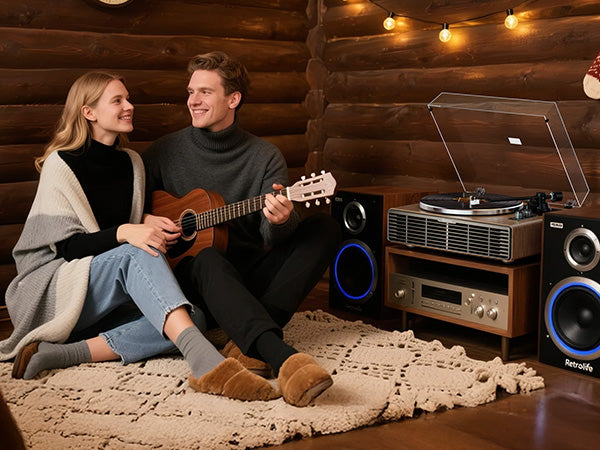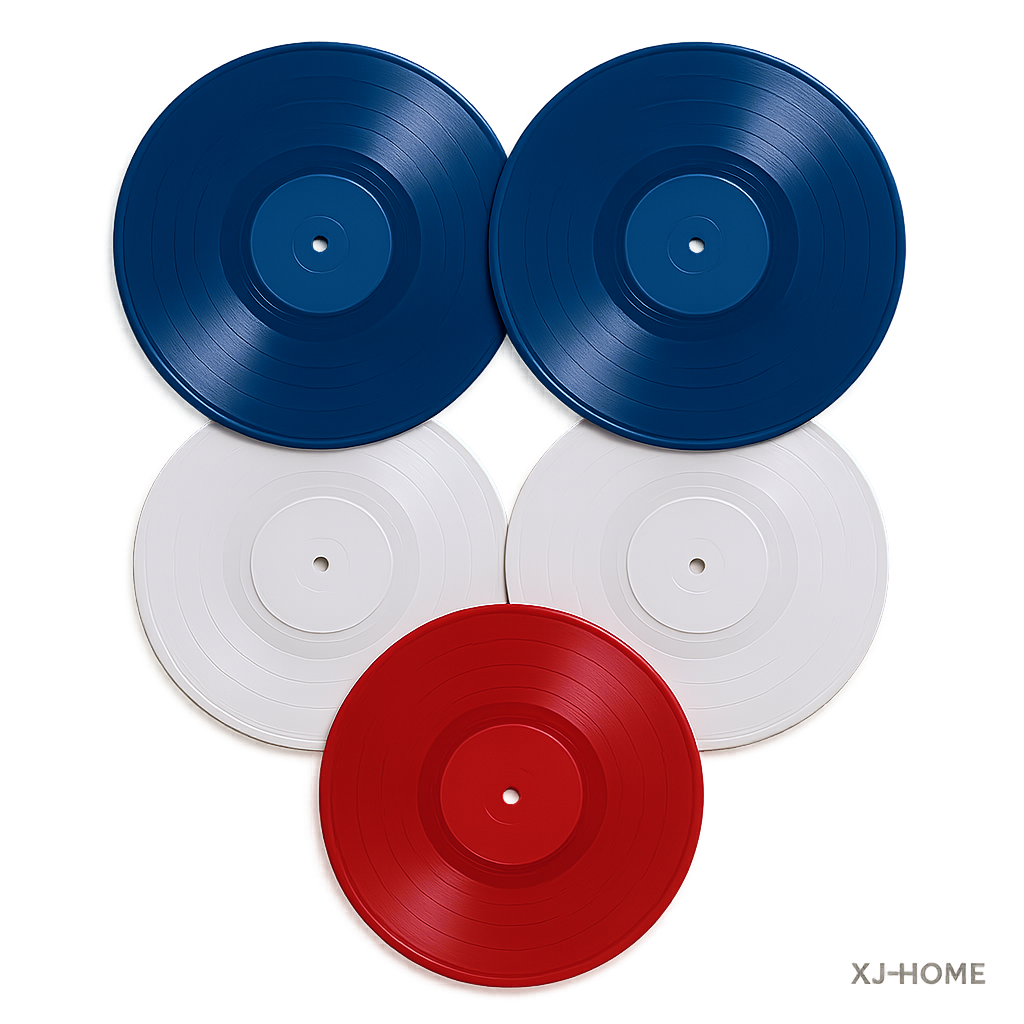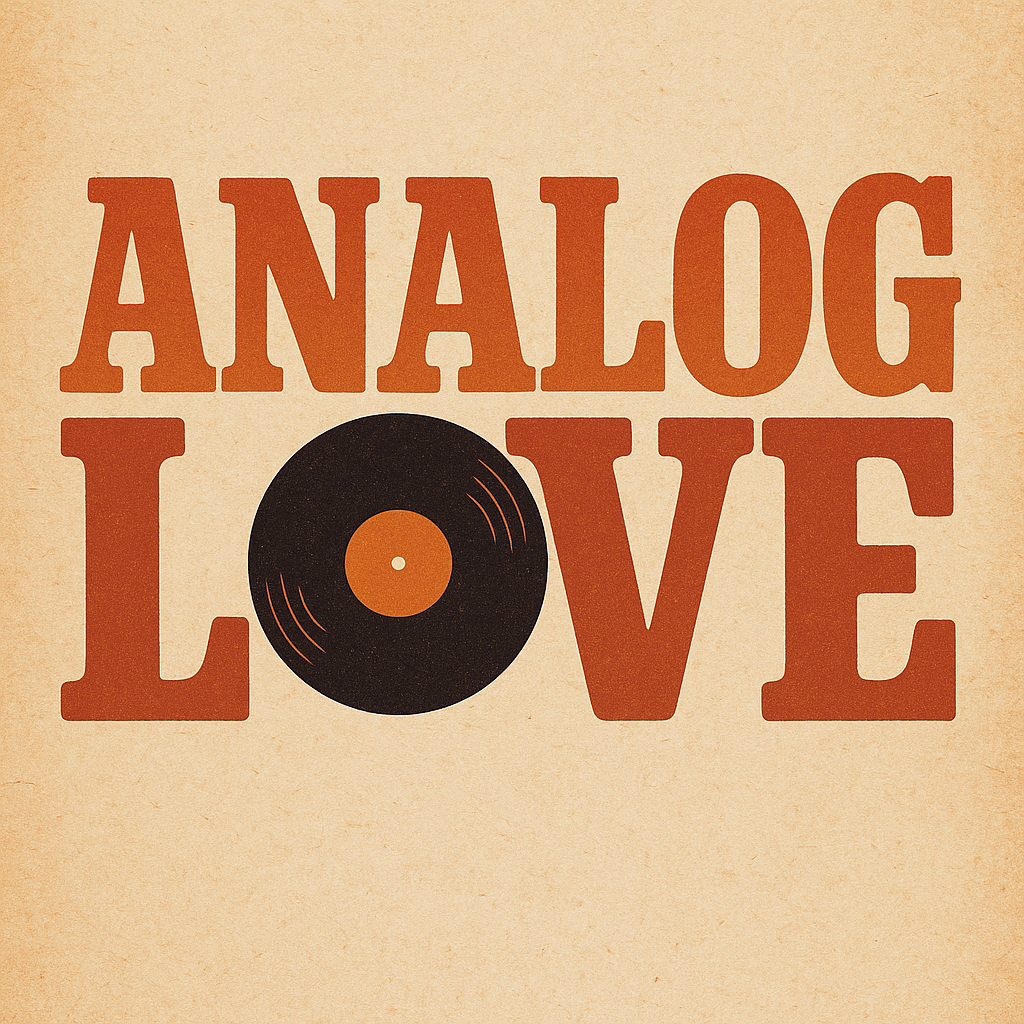The allure of vinyl is undeniable, but for many, the perceived cost of entry can seem daunting. You want that warm, analog sound, the tactile joy of handling records, but you don't want to break the bank. And critically, you absolutely don't want a turntable that will chew up your cherished LPs. The good news? It's entirely possible to find "cheap" turntables that don't sacrifice essential quality. The bad news? You have to navigate a minefield of truly awful options to find them.
This guide is about arming you with the knowledge to make a smart choice – one that respects your records and your ears, without emptying your wallet.
What "Cheap" Should Mean (and What to Run From)
Let's be brutally honest. Those all-in-one suitcase record players, often brightly colored and priced under $100, are the primary villains in the budget turntable saga. While their retro charm is tempting, their internals are almost universally a recipe for disaster:
-
Heavy, Non-Adjustable Tracking Force: Their tonearms often exert far too much pressure on the record, literally scraping away the grooves with each play.
-
Low-Quality Ceramic Cartridges: These offer poor sound fidelity and contribute significantly to record wear.
-
Flimsy Construction: Vibration is the enemy of good sound, and these players are typically made from lightweight, resonant plastics.
The "quality" we're seeking in a budget turntable isn't about rivaling multi-thousand-dollar audiophile rigs. It's about:
-
Record Preservation: The turntable must not damage your vinyl.
-
Decent Sound: It should provide a listenable, enjoyable experience that hints at vinyl's potential.
-
Reliability: It should function consistently.
The Non-Negotiables: What to Look For in a Budget Turntable That Cares
To step up from the record-grinders, even on a tight budget (think the $150-$300 range for 2025), here are the features that indicate a manufacturer is at least trying to deliver a quality experience:
-
Adjustable Counterweight (for Vertical Tracking Force - VTF): This is arguably the most important feature for record care. It allows you to set the correct downward pressure of the stylus on the record, as specified by the cartridge manufacturer. Too little, and it skips; too much, and it wears your records excessively.
-
Anti-Skate Control: As the tonearm moves across the record, a natural inward force pulls on it. Anti-skate applies a subtle outward counterforce to keep the stylus centered in the groove, ensuring even wear and balanced sound.
-
Decent Moving Magnet (MM) Cartridge (Often Replaceable/Upgradeable): Look for brands like Audio-Technica (e.g., AT3600L, AT91, AT95E, or their VM95 series equivalents) pre-installed. These are known for providing good sound for their price and being relatively kind to records. The ability to replace the stylus (needle) is essential, and upgrading the whole cartridge later is a bonus.
-
Reasonably Solid Plinth and Platter: While you won't get tank-like construction at this price, look for a plinth (base) made of MDF or a heavier grade of plastic rather than thin, hollow plastic. The platter should have some mass to aid speed stability.
-
(Highly Recommended) Built-In, Switchable Phono Preamplifier: Turntables produce a very low-level signal that needs special amplification and equalization (RIAA curve). A built-in phono preamp allows you to connect directly to powered speakers or any amplifier with a standard line-level input (AUX). A switchable one is even better, as it allows you to bypass it if you later invest in a higher-quality external phono stage.
Navigating the "Good Enough" vs. "Truly Good for the Price"
Here’s where it gets nuanced. Some very popular entry-level turntables offer ease of use and are a massive step up from suitcase players, but they achieve their price point by omitting user-adjustable counterweights and anti-skate, opting for factory pre-sets.
-
The "Plug-and-Play" Tier (e.g., Audio-Technica AT-LP60X series, some Sony/Denon entry models around $150-$250):
-
Pros: Extremely easy to set up and use (often fully automatic), built-in preamps, generally safe for records due to better tonearm geometry and decent cartridges (like the AT3600L) compared to suitcase players. They track at a force that's acceptable for the included cartridge.
-
Cons: Lack of user-adjustable Vertical Tracking Force and Anti-Skate. This means you can't fine-tune for optimal performance or easily upgrade to a wider range of cartridges that might require different settings.
-
Verdict: If your budget is absolutely firm and you prioritize ease of use above all, these are acceptable entry points. They are unlikely to damage your records when used as intended. However, you are sacrificing a degree of sonic potential and record care precision.
-
Stepping Up: Budget Turntables That Truly Don't Sacrifice Core Quality
For a bit more investment, or by prioritizing features differently, you can find turntables that offer those crucial adjustability features, providing a better foundation for both sound quality and long-term record care.
-
Fluance RT80 ($199) / RT81 ($249):
-
Why they make the cut: Fluance has made a name for itself by offering impressive value. The RT80 is often cited as a top pick under $200. Both models typically feature an Audio-Technica cartridge (AT91 on RT80, often AT95E on RT81), an adjustable counterweight, anti-skate control, and a solid MDF plinth. The RT81 usually adds auto-stop. Both models also feature a built-in, switchable phono preamp.
-
Strengths: Excellent build quality for the price, includes essential adjustments, good stock cartridges, and a built-in preamp. They look and feel more expensive than they are.
-
Considerations: Manual speed change on some models (lifting the platter to move the belt).
-
-
Audio-Technica AT-LPW30TK ($200-$250) / AT-LPW40WN (around $350, but sometimes dips closer to $300 on sale):
-
Why they make the cut: These are a significant step up from the AT-LP60X line. They feature a proper straight tonearm with adjustable counterweight and anti-skate, often come with the well-regarded AT-VM95C or VM95E cartridge, and boast attractive wood veneer plinths. They include a built-in, switchable phono preamp.
-
Strengths: Good aesthetics, essential adjustability, solid cartridge, built-in preamp. The carbon fiber tonearm on the LPW40WN (if your budget can stretch) is a notable feature for improved rigidity.
-
Considerations: Manual operation.
-
-
Music Hall MMF-1.3 (Often around $300-$350, can sometimes be found lower):
-
Why it makes the cut: Music Hall is a respected hi-fi brand. The MMF-1.3 offers audiophile-focused features at a more accessible price, including an alloy platter, a quality tonearm with adjustable counterweight and anti-skate, typically an Audio-Technica AT3600L cartridge (which performs well and is upgradeable), and a built-in phono preamp.
-
Strengths: Focus on core audio components, solid build, includes all necessary adjustments and a phono stage.
-
Considerations: Manual speed change (moving the belt).
-
A Note on the Used Market: While beyond the scope of "new cheap turntables," the vintage market can yield incredible bargains if you know what to look for and are prepared for potential maintenance. However, for a beginner seeking reliability, new is often a safer bet.
What You're Still Trading Off at This Price Point
Even with these recommended "cheap but quality" options, it's important to understand that manufacturers are making compromises to hit these price points:
-
Plinth Material & Mass: Will generally be less dense and inert than more expensive models.
-
Motor Quality & Isolation: May have slightly more speed variation or motor noise than higher-end decks.
-
Tonearm Precision: Bearings and overall rigidity might not match premium offerings.
-
Stock Cartridge: While decent, there will always be better cartridges available (which these recommended tables allow you to upgrade to).
However, the critical point is that these compromises are generally in areas of ultimate refinement, not in the fundamental aspects of record care and basic sonic competence.
Setting Yourself Up for Success
Beyond the turntable itself, remember:
-
Level Surface: Your turntable must be on a stable, level surface.
-
Decent Speakers/Amplification: Your turntable is only as good as what it's playing through.
-
Record Care: Clean records sound better and last longer. A carbon fiber brush is a must-have.
Choosing a budget turntable that doesn't sacrifice quality is about smart compromises. Prioritize adjustable tracking force, anti-skate, and a decent moving magnet cartridge. The models listed above, such as the Fluance RT80/RT81 or Audio-Technica AT-LPW30TK, represent excellent starting points that respect both your music and your wallet. As your passion grows, these turntables offer a solid foundation that won't hold you back, unlike their cheaper, record-damaging cousins. Investing a little more initially for these core features, a philosophy we deeply value at XJ-HOME when considering overall system synergy, will pay dividends in listening pleasure and the longevity of your precious vinyl collection. You can explore our thoughts on building a balanced audio system at https://xenonjade.com.





Leave a comment
All comments are moderated before being published.
This site is protected by hCaptcha and the hCaptcha Privacy Policy and Terms of Service apply.